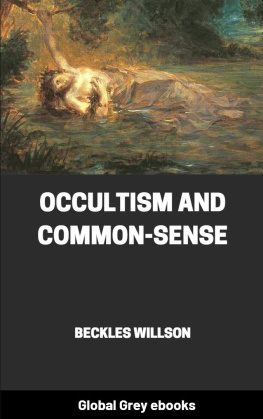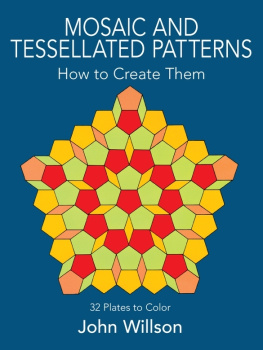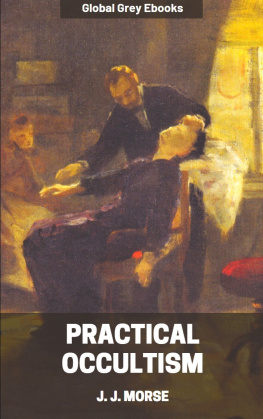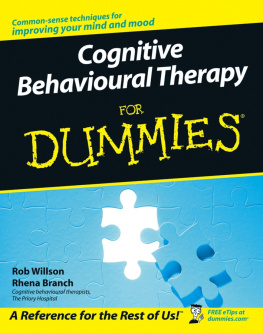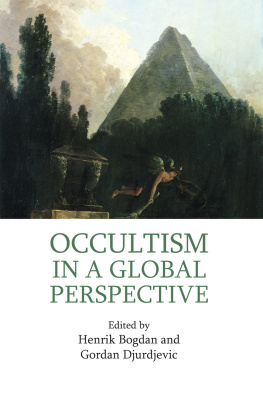Beckles Willson - Occultism and Common-Sense
Here you can read online Beckles Willson - Occultism and Common-Sense full text of the book (entire story) in english for free. Download pdf and epub, get meaning, cover and reviews about this ebook. year: 2020, publisher: Global Grey ebooks, genre: Science. Description of the work, (preface) as well as reviews are available. Best literature library LitArk.com created for fans of good reading and offers a wide selection of genres:
Romance novel
Science fiction
Adventure
Detective
Science
History
Home and family
Prose
Art
Politics
Computer
Non-fiction
Religion
Business
Children
Humor
Choose a favorite category and find really read worthwhile books. Enjoy immersion in the world of imagination, feel the emotions of the characters or learn something new for yourself, make an fascinating discovery.
- Book:Occultism and Common-Sense
- Author:
- Publisher:Global Grey ebooks
- Genre:
- Year:2020
- Rating:4 / 5
- Favourites:Add to favourites
- Your mark:
- 80
- 1
- 2
- 3
- 4
- 5
Occultism and Common-Sense: summary, description and annotation
We offer to read an annotation, description, summary or preface (depends on what the author of the book "Occultism and Common-Sense" wrote himself). If you haven't found the necessary information about the book — write in the comments, we will try to find it.
Occultism and Common-Sense — read online for free the complete book (whole text) full work
Below is the text of the book, divided by pages. System saving the place of the last page read, allows you to conveniently read the book "Occultism and Common-Sense" online for free, without having to search again every time where you left off. Put a bookmark, and you can go to the page where you finished reading at any time.
Font size:
Interval:
Bookmark:
COMMON-SENSE
By Beckles Willson.
This edition was created and published by Global Grey
GlobalGrey 2020
Get more free ebooks at

globalgreyebooks.com
By Professor W. F. Barrett, F.R.S.
Those of us who took part in the foundation of the Society for Psychical Research were convinced from personal investigation and from the testimony of competent witnesses that, amidst much illusion and deception, there existed an important body of facts, hitherto unrecognised by science, which, if incontestably established, would be of supreme interest and importance.
It was hoped that by applying scientific methods to their systematic investigation these obscure phenomena might eventually be rescued from the disorderly mystery of ignorance; (but we recognised that this would be a work, not of one generation but of many.) Hence to preserve continuity of effort it was necessary to form a society, the aim of which should be, as we stated at the outset, to bring to bear on these obscure questions the same spirit of exact and unimpassioned inquiry which has enabled science to solve so many problems once not less obscure nor less hotly debated. And such success as the society has achieved is in no small measure due to the wise counsel and ungrudging expenditure both of time and means which the late Professor Henry Sidgwick gave, and which Mrs Sidgwick continues to give, to all the details of its work.
Turning now to the author of the following pages, everyone must recognise the industry he has shown and the fairness of spirit he has endeavoured to maintain. With different groups of phenomena, the evidential value varies enormously. The testimony of honest and even careful witnesses requires to be received with caution, owing to the intrusion of two sources of error to which untrained observers are very liable. These are unconscious mal-observation and unintentional mis-description. I cannot here enter into the proof of this statement, but it is fully established. Oddly enough, not only a credulous observer but a cynical or ferocious sceptic is singularly prone to these errors when, for the first time, he is induced to investigate psychical phenomena which, in the pride of his superior intelligence, he has hitherto scorned. I could give some amusing illustrations of this within my own knowledge. For instance, a clever but critical friend who had frequently scoffed at the evidence for thought-transference published in the "Proceedings of the Society for Psychical Research," one day seriously informed me he had been converted to a belief in thought-transference by some conclusive experiments he had witnessed. Upon inquiring where these experiments took place I found it was at a public performance of a very inferior Zancig who was then touring through the provinces!
Mr Beckles Willson frankly tells us that "the light heart and open mind" with which he set forth on his inquiry deserted him before he drew his labours to a close. For, entering upon the subject as a novice, he found himself unexpectedly confronted by the mass of evidence and the numerous and profoundly difficult problems which the Psychical Society have had to face. His conclusions are derived from a study of the available evidence, and this study has convinced himas it has convinced, so far as I know, every other painstaking and honest inquirerthat no theories based on fraud, illusion, nor even on telepathy, are adequate to account for the whole of the phenomena he has reviewed. Contrary to his prepossessions, Mr Willson tells us that he has been led to the conclusion that the only satisfactory explanation of these phenomena is the action of discarnate human beingsthat is to say, the Spiritualistic hypothesis.
I can hardly suppose he means to apply this statement to more than the small residue of phenomena which he finds inexplicable on any other hypothesis. Assuming this restricted view to be meant, the question arises, Is the evidence on which it is based sufficiently abundant, trustworthy, and conclusive, to warrant such a far-reaching statement? Here we must turn from the author to ascertain what has been the conclusion arrived at by those who have given long years to a searching experimental investigation of these phenomena, and who have approached the subject in a scientific and judicial spirit. The most noteworthy instance is the testimony of that shrewd and able investigator, the late Dr Hodgson. His patient and laborious inquiry into the trance phenomena of Mrs Piper ultimately led him to the conclusion arrived at by Mr Willson. Dr Hodgson's well-known exposure of Madame Blavatsky and other fraudulent mediums and his sane and cautious judgment render his opinion of great weight. Then, again, we find that this also was the conclusion to which Frederic Myers was gradually driven. And long prior to this it was the conclusion arrived at by that acute thinker, the late Professor de Morgan, and it is the conclusion strongly heldby the great naturalist, Dr A. R. Wallace, and held also by several other eminent investigators I might name.
So momentous a conclusion, if capable of such complete verification as to be universally accepted by science, would obviously throw all other discoveries into the background. I say if capable of being verified by scientific methods, but, although the weight of opinion will, in my opinion, ultimately lead to a very wide acceptance of this conclusion, yet it seems to me highly probable that the experimental discovery of the survival of human personality after death will always elude conclusive scientific demonstration. This particular field of psychical investigation belongs to an order other than that with which science deals; and, this being so, it can never be adequately investigated with the limited faculties we now possess.
In any case, as I said in a letter published in The Times, so long ago as September 1876, before science is in a position to frame any satisfactory hypothesis of the so-called Spiritualistic phenomena, a number of antecedent questions will have to be investigated and decided. Prominent among these, I urged more than thirty years ago, was the question whether ideas or information can be voluntarily or involuntarily transferred from one mind to another independently of the recognised organs of perception. Experiments I had then recently made led me to the conclusion that something new to science, which might provisionally be called thought-transference, now known in its wider aspect as telepathy, did really exist. This, if established, would, as I pointed out, unquestionably solve some of the so-called spirit communications which had so puzzled investigators. But the idea of thought-transference was at that time just as obnoxious to official science as Spiritualism. Mr Willson quotes the implacable disbelief, even in the possibility of telepathy, which that great man Helmholtz expressed to me. And it is amusing now to recall the fierce outcry aroused by the paper I read at the British Association meeting in 1876, when, after narrating certain apparently transcendental phenomena I had witnessed, I asked that a committee of scientific men should be appointed to investigate preliminary question of the possibility of thought-transference.It is true the evidence on behalfof telepathy has since become so abundant that now few deny its probability, but even telepathy has not yet taken its place among the recognised scientific verities. I hope this recognition will not be long delayed, but until it occurs it is almost as illegitimate to use telepathy, as some do so freely, for the foundation of their theories of transcendental phenomena as to use the spiritualistic hypothesis itself.
Font size:
Interval:
Bookmark:
Similar books «Occultism and Common-Sense»
Look at similar books to Occultism and Common-Sense. We have selected literature similar in name and meaning in the hope of providing readers with more options to find new, interesting, not yet read works.
Discussion, reviews of the book Occultism and Common-Sense and just readers' own opinions. Leave your comments, write what you think about the work, its meaning or the main characters. Specify what exactly you liked and what you didn't like, and why you think so.

